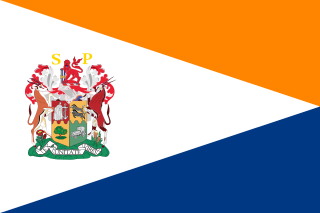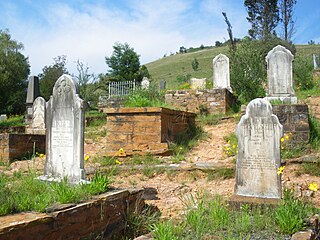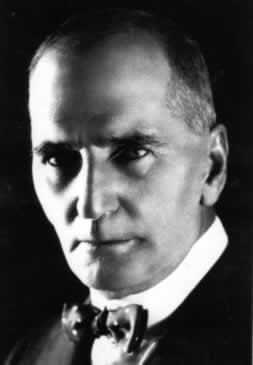
The State Secretary of the South African Republic (Transvaal) was the principal administrative officer of that Boer republic, officially known as the Zuid-Afrikaansche Republiek.

The State Secretary of the South African Republic (Transvaal) was the principal administrative officer of that Boer republic, officially known as the Zuid-Afrikaansche Republiek.
| No. | Portrait | Name (Birth–Death) | Tenure | Notes |
|---|---|---|---|---|
| 1 |  | Willem Eduard Bok (1846–1904) | 1880–1888 | |
| 2 |  | Willem Johannes Leyds (1859–1940) | 1888–1897 | |
| – | Cornelis van Boeschoten (1845–1927) | 1897 | During extended visit of Leyds to Europe (April–July 1897). [1] | |
| 2 |  | Willem Johannes Leyds (1859–1940) | 1897–1898 | In view of the deteriorating relationship with the British, it was decided that it would politically be better to have an Afrikaner as State Secretary rather than a Dutchman, hence Reitz was appointed to the post. Leyds went to Europe as envoy of the South African Republic, a position he held until the end of the war. |
| 3 |  | Francis William Reitz (1844–1934) | 1898–1902 | Former State President of the Orange Free State. Retired from that position in 1896 due to ill-health. |

The prime minister of South Africa was the head of government in South Africa between 1910 and 1984.

The State President of the Republic of South Africa was the head of state of South Africa from 1961 to 1994. The office was established when the country became a republic on 31 May 1961, outside the Commonwealth of Nations, and Queen Elizabeth II ceased to be Queen of South Africa. The position of Governor-General of South Africa was accordingly abolished. From 1961 to 1984, the post was largely ceremonial. After constitutional reforms enacted in 1983 and taking effect in 1984, the State President became an executive post, and its holder was both head of state and head of government.

The National Party, also known as the Nationalist Party, was a political party in South Africa from 1914 to 1997, which was responsible for the implementation of apartheid rule. The party was an Afrikaner ethnic nationalist party, which initially promoted the interests of Afrikaners but later became a stalwart promoter and enactor of white supremacy, for which it is best known. It first became the governing party of the country in 1924. It merged with its rival, the SAP, during the Great Depression, and a splinter faction became the official opposition during World War II and returned to power. With the National Party governing South Africa from 4 June 1948 until 9 May 1994, the country for the bulk of this time was only a de jure or partial democracy, as from 1958 onwards non-white people were barred from voting. In 1990, it began to style itself as simply a South African civic nationalist party, and after the fall of apartheid in 1994, attempted to become a moderate conservative one. The party's reputation was damaged irreparably by perpetrating apartheid, and it rebranded itself as the New National Party in 1997 before eventually dissolving in 2005.

An uitlander, Afrikaans for "foreigner", was a foreign migrant worker during the Witwatersrand Gold Rush in the independent Transvaal Republic following the discovery of gold in 1886. The limited rights granted to this group in the independent Boer Republics was one of the contributing factors behind the Second Boer War.

Marais Viljoen, was the last ceremonial State President of South Africa from 4 June 1979 until 3 September 1984. Viljoen became the last of the ceremonial presidents of South Africa when he was succeeded in 1984 by Prime Minister P. W. Botha, who combined the offices into an executive state presidency.

The Witwatersrand Gold Rush was a gold rush that began in 1886 and led to the establishment of Johannesburg, South Africa. It was a part of the Mineral Revolution.
The following lists events that happened during 1978 in South Africa.
The following lists events that happened during 1979 in South Africa.

A referendum on becoming a republic was held in South Africa on 5 October 1960. The Afrikaner-dominated right-wing National Party, which had come to power in 1948, was avowedly republican and regarded the position of Queen Elizabeth II as the South African monarch as a relic of British imperialism. The National Party government subsequently organised the referendum on whether the then Union of South Africa should become a republic. The vote, which was restricted to whites—the first such national election in the union—was narrowly approved by 52.29% of the voters. The Republic of South Africa was constituted on 31 May 1961.

Eugène Nielen Marais was a South African lawyer, naturalist, and important writer and poète maudit in the Second Language Movement of Afrikaans literature. Since his death by his own hand, Marais has been widely hailed as a literary and scientific genius and a cultural hero of the Afrikaner people.

General elections were held in South Africa on 29 April 1981. The National Party, under the leadership of P. W. Botha since 1978, lost some support, but achieved another landslide victory, winning 131 of 165 directly elected seats in the House of Assembly.

The Boerestaat Party is a Boer nationalist South African political party founded on 30 September 1986 by Robert van Tonder. It was never officially registered as a political party because it was unable to rally 500 persons under one roof, a requirement under South African electoral law for official political party status. It was never represented in the South African Parliament, neither in the apartheid era nor after democratisation. In 1989, it joined the Afrikaner Weerstandsbeweging (AWB) in declaring support for Jaap Marais, the leader of the Herstigte Nasionale Party and has worked with the HNP on occasion since. The party was a charter member of the Afrikaner Volksfront coalition group. It has also operated with the paramilitary group, the Boere Weerstandsbeweging led by Andrew Ford.

Many people of European heritage in South Africa are descended from Huguenots. Most of these originally settled in the Cape Colony, but were absorbed into the Afrikaner and Afrikaans-speaking population, because they had religious similarities to the Dutch colonists.

Stephanus le Roux Marais was a South African composer known for his significant contribution to Afrikaans art song.
Hoërskool Marais Viljoen is a public Afrikaans medium co-educational high school situated in the city of Alberton in the Gauteng province of South Africa. It is one of the top and most academic schools in Gauteng province.

Boervolk Radio presented by the Transvaal Separatists, is an internet-only radio station based in Kempton Park, South Africa.

Lijdensrust, officially the Republic of Lijdensrust, was a short-lived Boer republic in the area of present-day Namibia. Declared on 20 October 1885, it was originally named Upingtonia, but changed its name soon after as the reason for its original name proved worthless. In 1887, it was merged into German South-West Africa.
Freemasonry was brought to South Africa by members of the Grand Orient of the Netherlands in 1772. Today there are lodges chartered under the United Grand Lodge of England, the Grand Lodge of Scotland, the Grand Lodge of Ireland, the Grand Lodge of South Africa, as well as Le Droit Humain

The 1979 South African presidential election pitted the President of the South African Senate Marais Viljoen, backed by the ruling National Party, against the former United Party leader De Villiers Graaff, backed by the New Republic Party, and the Deputy Chancellor of the University of the Witwatersrand, Guerino Bozzoli, supported by the Progressive Federal Party. In accordance with the South African Constitution of 1961, the State President, a largely ceremonial post, was elected by a joint sitting of both houses of the South African Parliament. Both Bozzoli and Graaff had already been candidates for the presidential election of September 1978.
Paulnita Marais is a South African politician who has been a Member of the National Assembly since January 2022, representing the Economic Freedom Fighters (EFF). She was formerly a councillor in the Mangaung Metropolitan Municipality.